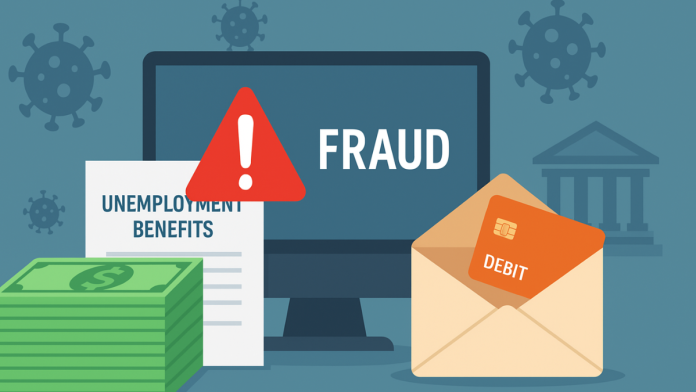A federal jury in Albany, Georgia, has convicted Malcolm Jeffrey, 34, of Cordele, Georgia, for leading a scheme that defrauded the Georgia Department of Labor out of more than $16 million in unemployment benefits. These funds were originally meant to help people who lost jobs during the COVID-19 pandemic.
According to court records, Jeffrey worked with several partners to carry out the scheme. Together, they filed more than 7,000 fake unemployment insurance claims. The claims were submitted using stolen identities and false employee lists.
The fraud centered around a company that no longer existed, called Down N Dirty Transportation LLC. Jeffrey created a fake employer account under this business name with the Georgia Department of Labor. Using that account, he submitted thousands of false unemployment claims.
How the Money Was Stolen
Investigators explained that Jeffrey and his group used the personal information of hundreds of identity theft victims. They built fake lists of employees who supposedly worked for the business. Claims were then filed under those names through the Department of Labor’s website.
Nathan Reis pleads guilt in COVID-19 relief loan fraud involving PPP program
When the claims were approved, unemployment benefits were sent out. The stolen money, amounting to over $16 million, was delivered through prepaid debit cards. These cards were mailed to different addresses in and around Cordele, Georgia.
The group then collected the debit cards and used them to access the stolen funds. This money was meant to provide relief for unemployed workers during one of the most difficult times in recent history, but instead it went into the hands of fraudsters.
Federal investigators, including agents from the Department of Labor Office of Inspector General (DOL-OIG), the U.S. Postal Service Office of Inspector General (USPS-OIG), the Internal Revenue Service Criminal Investigation (IRS-CI), the U.S. Postal Inspection Service (USPIS), the U.S. Secret Service (USSS), Homeland Security Investigations (HSI), and the Department of Homeland Security Office of Inspector General (DHS-OIG), worked together to uncover the scheme.
Officials stressed the seriousness of the crime. Acting Assistant Attorney General Matthew R. Galeotti of the Justice Department’s Criminal Division said Jeffrey and his co-conspirators “used stolen identities to submit fraudulent unemployment claims in order to steal millions of dollars of funds intended for the benefit of unemployed Americans.”
Jonathan Ulrich, Special Agent in Charge of USPS-OIG, noted that the conviction underlines the commitment to hold accountable those who exploit federal relief programs. Similarly, Rodney M. Hopkins, Inspector in Charge of USPIS Atlanta Division, emphasized that Jeffrey not only stole money but also relied on stolen personal information to carry out the fraud.
Mathew Broadhurst, Special Agent in Charge of DOL-OIG Southeast Region, explained that Jeffrey created a fictitious employer account under his business, resulting in substantial losses to the unemployment program.
Jury Conviction and Possible Sentence
The jury found Malcolm Jeffrey guilty of conspiracy to commit mail fraud. This is a serious federal crime. Mail fraud charges are often brought when the postal system is used to carry out or hide illegal activity.
The conviction means Jeffrey now faces a maximum sentence of 20 years in federal prison. A judge will determine the exact length of his sentence at a later date, after reviewing federal guidelines and the details of the case.
Prosecutors Lyndie Freeman, Siji Moore, and Kyle Crawford from the Justice Department’s Criminal Division presented the case in court, showing how the fraud was executed and how the stolen money was distributed.
Officials underscored that crimes like this take away critical funds meant to help people in need. During the pandemic, thousands of Georgia residents were struggling to make ends meet, and the unemployment benefits program was designed to support them. Instead, millions of dollars were siphoned away through fraud and deception.
The federal jury’s decision shows that those who exploit such programs can and will be held accountable.


